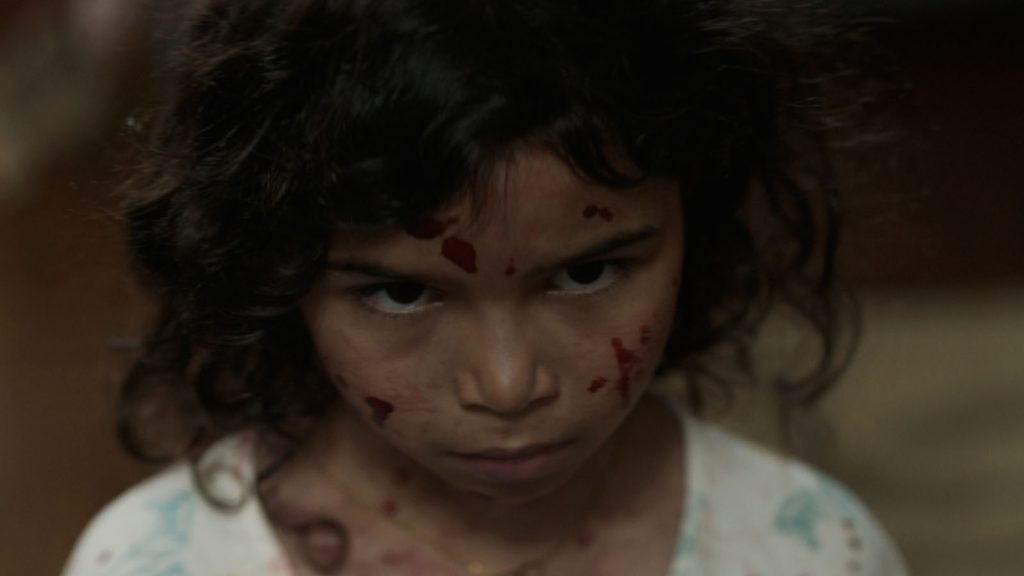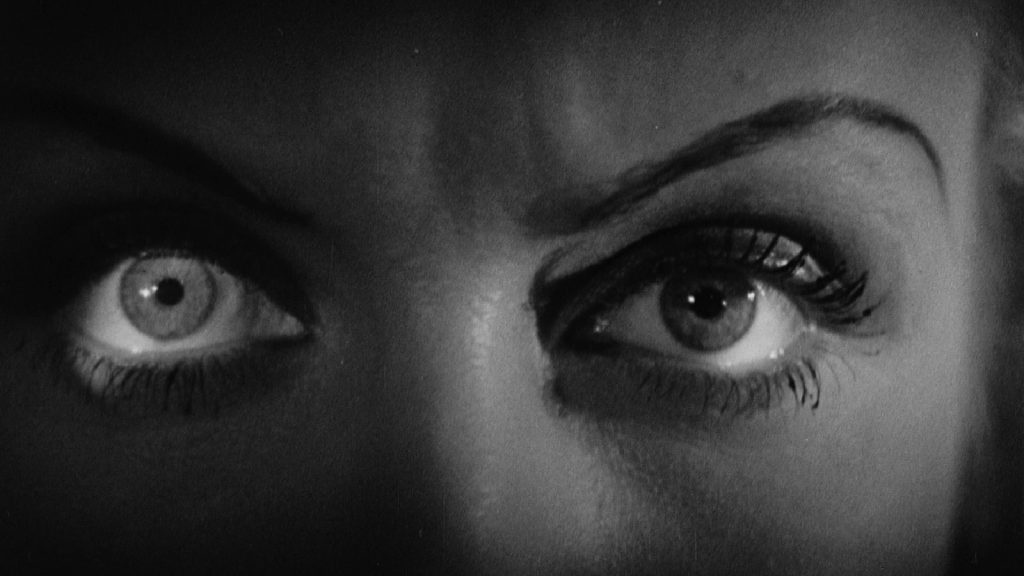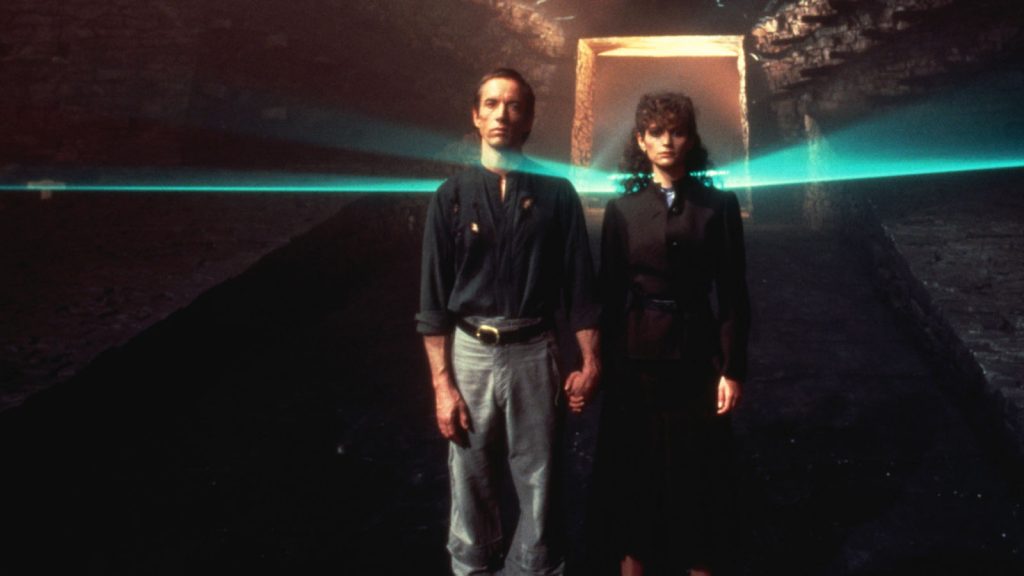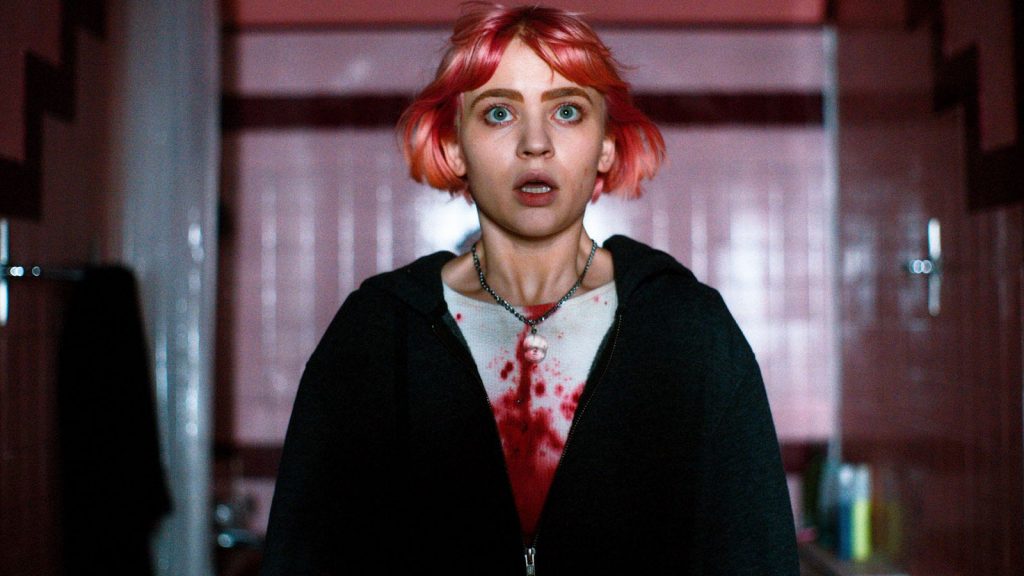
The influence of Mary Shelley’s Frankenstein on motion pictures can be traced back to the early years of cinema, and reanimating the dead has since grown into one of horror’s most beloved staples. Laura Moss’s exquisite feature debut is the latest homage to the timeless mad-scientist/monster morality tale. In subject and execution, birth/rebirth is highly clinical—unfolding mostly in medical environments (which here can mean anyplace, including homes and even bar bathrooms), and featuring a palette that’s cold and muted—yet its story is told from an ultra-human, fully female perspective.
During the gruesome opening sequence, we are introduced to both of birth/rebirth’s intriguing lead women, seeming strangers connected in parallel by an ill-fated premature delivery at the Bronx hospital where they both work. Celie (Judy Reyes), a maternity nurse, is a comforting presence, someone you would definitely want by your side during labor. And Rose (Marin Ireland), a pathologist, has the peculiar nature you’d expect from a person who toils away in a basement, contending with death, disease, and dismemberment all day. She is socially awkward and quite callous, and the easy first assumption is that we’ll be witness to Rose’s villainization—especially when she steals the body of a 6-year-old girl, Lila (A.J. Lister), who dies suddenly of bacterial meningitis. But, as it turns out, there’s a hell of a lot more on this film’s mind than the dramatics of a demented doctor.

When Celie, who happens to be Lila’s mother, discovers that her daughter’s corpse has gone missing, her search leads to Rose’s front door. But, again shattering initial assumptions, this is no revenge thriller, and inside the apartment, Celie is instead astounded—and relieved—to find that Rose, a longtime conductor of her own experimental death studies, has brought Lila back to life—or some version of it, anyway. (The pig who lives with Rose was also dead not so long ago.) Celie moves in, and the women form an unspoken partnership, bonded by their obsession with regeneration. (At one point, there’s a throwaway “she’s alive” Frankenstein nod‚ for despite the film’s dark mood, there are also some moments of playfulness and even straight-up laughs.) You may find yourself rooting for these two—Ireland and Reyes’s consummate performances certainly help draw us in—even as they descend deeper into questionable territory once Rose can’t physically produce the fetal fluid her experiments rely on, and they must find another source. As Rose falls apart (paler than usual, screwing up at work), Celie becomes more and more determined to keep her daughter’s resurrection on track.
Through Rose and Celie, and later Emily (Breeda Wool)—a pregnant patient of Celie’s who unluckily matches the genetic profile needed to continue the serum’s production—the film presents an exhaustive array of the emotional dimensions of motherhood that women regularly face: the hardships of being a mom and of losing one; of struggling to get pregnant and of accepting infertility; of providing for a child as a single, older mother; and of seeking replacement mother figures—all while there’s no mention of the women’s fathers, plus Lila doesn’t have one (Celie did IVF on her own), and Emily’s husband is just a shadow, well-meaning but ultimately dispensable.
Inevitably, some of this might cause discomfort to certain viewers (men, pro-lifers), but to many, the film’s unusual depth will be positively welcome. A striking score by Ariel Marx and the unnerving sounds of medical equipment work together to accentuate Moss’s chilling vision that lives at the dangerous intersections of loss and recovery, life and death, right and wrong, and science and humanity.

is a writer, editor, and horror programmer based in New York. She is the editor of Bloodvine and her writing has appeared in publications such as The New York Times, Film Comment, and Rolling Stone.
The Substance opens with its simplest, most natural image: a raw chicken’s egg, the yolk yellow and dewy, lying flat on a white background.
BY VIOLET LUCCA | September 21, 2024
Anyone can watch a hearse-load of scary movies at Halloween—and lots of us do—but how many of those people try and seek out the films most indebted to, or representative of, the holiday itself?
BY COLIN FLEMING | OCTOBER 15, 2024
Audiences and filmmakers alike can’t seem to get enough of body horror. The Soskas went for it full-throttle with their 2019 remake of Cronenberg’s Rabid (an early work by one of the subgenre’s originators).
BY LAURA KERN | April 19, 2022

This pre-Code offering packs a lot of story into its typically brisk running time, with several plot threads weaving together a (not always successful) tapestry of spooky and criminal doings.
READ MORE >
BY ANN OLSSON | Month 00, 2021

In what could be the fastest-resulting rape revenge movie, a drunken lout brutally forces himself on Ida, the young woman who doesn't return his affections, during a party over Labor Day.
READ MORE >
BY LAURA KERN | Month 00, 2021

Beast is a lot of movies in one package - fractured fairy tale, belated-coming-of-age story, psychological drama, regional horror film - but above all it's a calling card for its leading lady, Jessie Buckley.
READ MORE >
BY LAURA KERN | Month 00, 2021